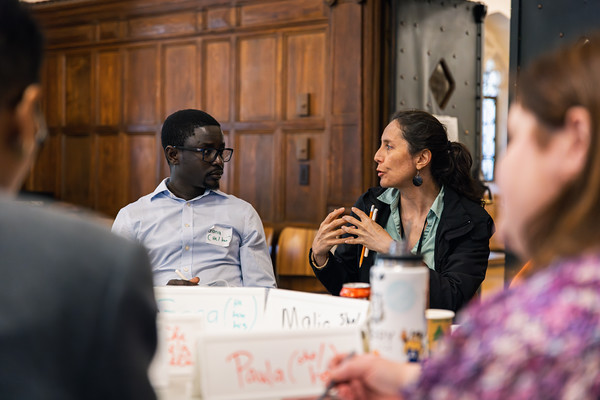The Poorvu Center offers semester-long faculty learning communities to support community and reflection around teaching practices through the sharing of strategies and resources. The learning communities convene every 2-3 weeks throughout the semester and are tailored to the needs of the group. We meet in person for the first and last meeting (with hybrid options if needed) and meet on Zoom for the other meetings. For those participating in the Faculty Teaching Academy for new faculty, attending 5 out of 6 sessions fulfills the learning community component.
Fall 2025 Learning Communities
Register by August 15, 2025 to have your schedule considered when determining the dates for the STEM and Quantitative Social Sciences Learning Community sessions. The exact topics that will be discussed will depend on the unique interests of the group, making each semester a unique learning opportunity for participants.
Register by August 15, 2025 to have your schedule considered when determining the dates for the Humanities and Qualitative Social Sciences Learning Community sessions. The exact topics that will be discussed will depend on the unique interests of the group, making each semester a unique learning opportunity for participants.
How to Join
Fill out the Learning Community Registration Form to join. Those who fill out the form by August 15, 2025 will have their schedules considered when deciding the dates for the learning community sessions.
Questions?
For any questions about our semester-long learning communities, please contact askpoorvucenter@yale.edu.
